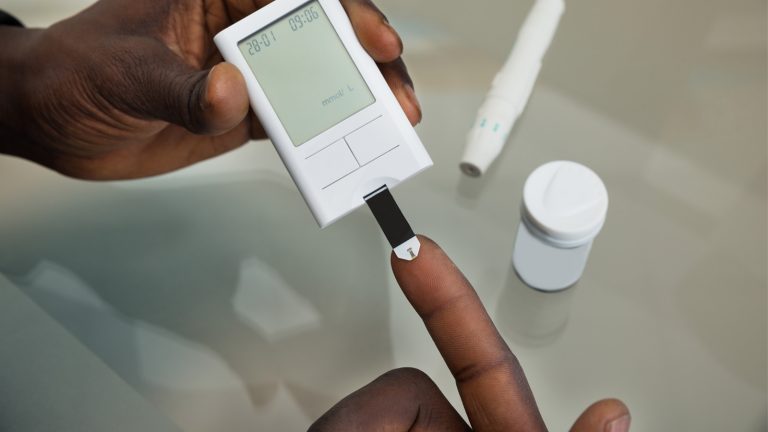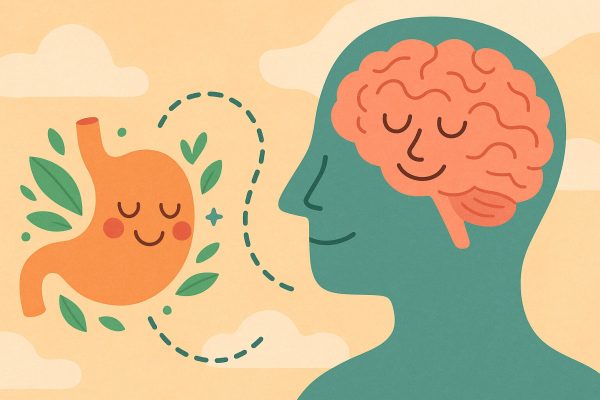Eat Regularly and Don’t Skip Meals
Not eating on time is one of the main reasons for a sudden drop in blood sugar. When meals are delayed, blood sugar drops, which can cause fatigue, dizziness, and irritability. Regular eating helps the body maintain its balance.
It’s best to eat three meals a day with small snacks in between if needed. This way, the body avoids the shock of extreme hunger or overeating. When meals are taken on time and in proper amounts, it’s easier to maintain a stable energy level.
For example, someone used to eating at noon but delays until 2 PM may feel anxious. But returning to regular mealtimes quickly restores energy and comfort.
Choose Slow-Digesting Foods
Foods high in fiber like whole grains, vegetables, and fruits help prevent sudden spikes in blood sugar. Since they digest slowly, blood sugar levels remain steady and satiety lasts longer.
If breakfast includes white bread and sugary drinks, blood sugar rises quickly but drops just as fast. Instead, it’s better to have oatmeal, eggs, or bananas—foods that provide longer-lasting energy.
Choosing the right foods positively affects the rest of the day. It helps stabilize mood, sharpen focus, and prevent frequent hunger. In the long run, it also helps avoid health complications.
Drink Water Instead of Sugary Beverages
Many people don’t realize that even natural juice can raise blood sugar levels—especially if consumed frequently. Water is a safe and natural way to stay hydrated without affecting blood sugar.
When the body lacks water, it struggles to regulate blood sugar. Drinking water before meals aids digestion and helps prevent overeating. Sometimes, what feels like hunger is actually thirst.
Cold juice might be refreshing midday, and occasional intake is fine. What’s important is making water—not sugary drinks—a daily habit.
Exercise Regularly, Even Lightly
The body becomes better at regulating blood sugar when it’s active. Even simple stretching or walking helps boost metabolism. Intense workouts aren’t necessary to feel the benefits.
For example, someone who takes a 20-minute walk every afternoon usually has better glucose control than someone who stays seated all day. Movement also reduces stress, which is linked to blood sugar spikes.
When gentle exercise becomes part of daily life, overall wellness improves. Sleep quality, mood, and energy all benefit—and these are closely tied to balanced blood sugar.
Watch Portion Sizes
It’s not just the type of food that matters, but also the amount. Even healthy food can cause a spike if consumed in excess. Knowing the right portion sizes and sticking to them during meals helps manage blood sugar.
Using smaller plates or dividing meals into smaller, more frequent portions can prevent blood sugar spikes. It helps the body absorb energy more steadily.
Eating with discipline benefits more than just blood sugar—it also helps manage weight, increase energy, and improve mood throughout the day. A small habit with a powerful impact.
Avoid Sudden Stress
Stress directly affects blood sugar. When overly stressed, the body releases cortisol—a hormone that raises blood sugar. So even without eating sweets, levels can rise just from tension.
Deep breathing, listening to music, or a few minutes of silence help ease stress. On busy days, even five minutes of walking or sitting quietly can change how you feel.
Managing stress benefits not just the mind but the entire body, including how blood sugar responds. A calm mind helps the body stay balanced.
Monitor Blood Sugar Regularly
Checking blood sugar regularly is a simple way to track how daily habits are working. It doesn’t have to be daily for everyone, but knowing when levels are high or low makes adjustment easier.
You might notice that certain meals cause quicker spikes or that lack of sleep raises morning levels. This kind of awareness helps tailor your lifestyle more effectively.
Monitoring brings a sense of control. No guessing—just clear, helpful numbers. That builds confidence and understanding of how your body responds.
Prioritize Deep and Restorative Sleep
Sleep is more than just rest—it’s a critical period when the body repairs itself and resets vital systems, including blood sugar regulation. During sleep, hormone levels stabilize, cellular repair occurs, and insulin sensitivity is restored. Skipping sleep or having poor-quality rest can significantly disrupt how the body processes glucose, often leading to higher blood sugar levels upon waking.
Lack of sleep doesn’t just impact the body—it affects decision-making and cravings as well. When sleep-deprived, people are more prone to choose sugary foods, feel fatigued, and experience emotional instability. These effects create a cycle: poor sleep leads to poor eating, which further throws off energy and sugar control. On the other hand, getting adequate sleep helps foster mental clarity and more mindful food decisions the next day.
Cultivating a healthy sleep routine is a powerful, often underestimated, tool in long-term wellness. This includes winding down before bed, limiting blue light from screens, and maintaining a consistent bedtime. Even small changes—like dimming the lights or drinking a calming tea—can greatly improve sleep quality. Once good sleep becomes habitual, increased vitality and more stable energy levels will naturally follow.
Support Blood Sugar with Natural Kitchen Boosters
In addition to a healthy diet and lifestyle, certain natural ingredients can give your body a gentle assist in managing blood sugar levels. One such powerhouse is cinnamon, which has been shown in studies to enhance insulin sensitivity and help lower fasting glucose. Just a sprinkle added to oatmeal, yogurt, or even coffee can be an easy, flavorful way to incorporate it.
Apple cider vinegar is another helpful natural aid. When taken before meals—such as diluted in water or used as a base for salad dressings—it can slow the rate at which sugar enters the bloodstream. While it isn’t a replacement for medical treatment, it offers a complementary, food-based strategy that may help reduce post-meal sugar spikes and promote steadier energy.
These natural options work best when they are part of a larger pattern of mindful living. They don’t require major changes to your diet, but they do call for intention and consistency. Incorporating them thoughtfully—alongside balanced meals, hydration, and movement—can help create a more supportive internal environment for blood sugar stability.
Build Sustainable Habits for Lasting Balance
The real key to maintaining stable blood sugar isn’t about extreme changes or short-term fixes—it’s about steady, sustainable habits. Simple actions like eating balanced meals regularly, drinking plenty of water, getting quality sleep, and managing stress can collectively create a strong foundation. These practices work synergistically to prevent blood sugar spikes and promote long-term health.
It’s also important to recognize that every body is different. What works well for one person may need adjusting for another. By tuning in to how your body reacts—tracking how you feel after meals, sleep, or exercise—you begin to gather the insights needed to build a lifestyle that truly supports your individual needs. This personal awareness builds confidence and helps you make choices rooted in experience, not guesswork.
Ultimately, balance comes from a holistic view of health. Managing blood sugar effectively means caring for your whole self—physically, emotionally, and mentally. Rather than obsessing over restrictions, shift the focus to nourishing habits and mindful self-care. In doing so, you create a lifestyle that supports well-being far beyond blood sugar management.




